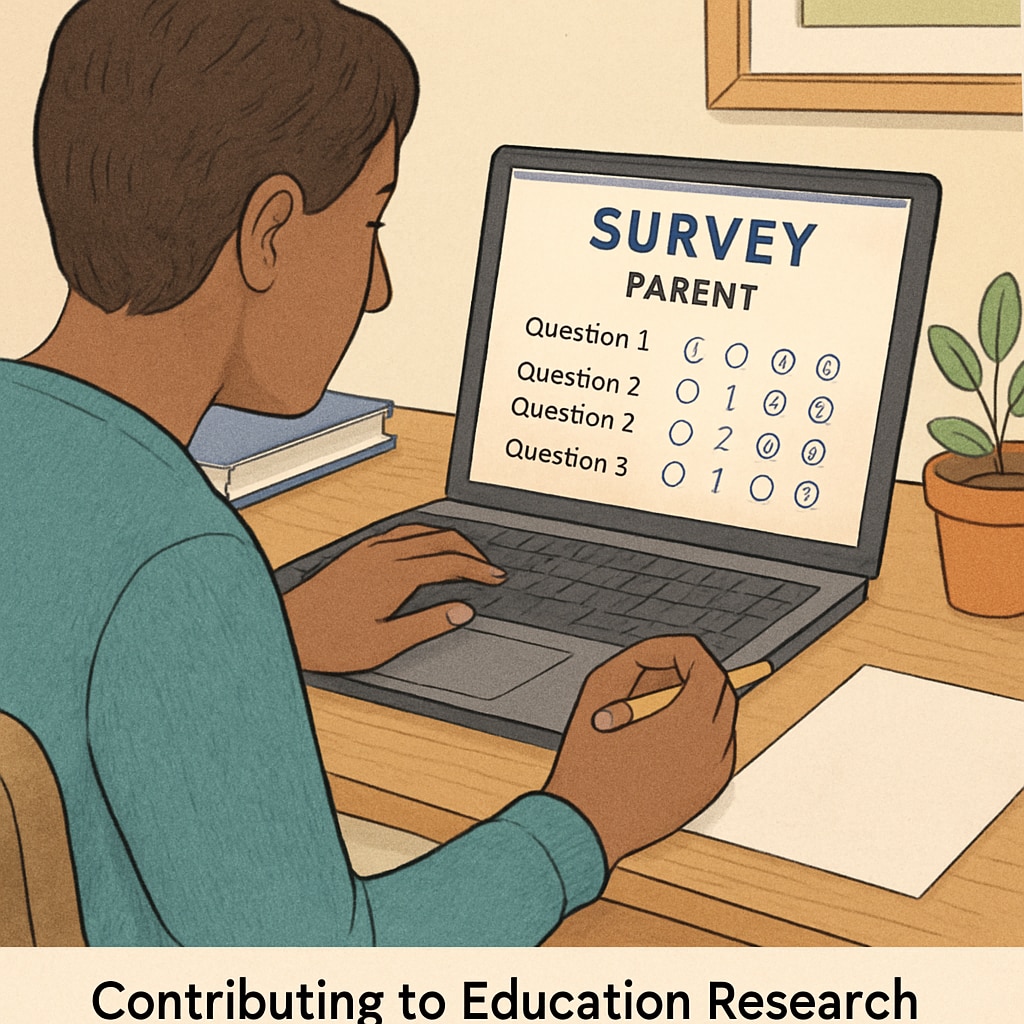In today’s rapidly evolving educational landscape, research, surveys, and data-driven insights play a pivotal role in shaping the future of K12 education. By participating in research surveys, you—whether a teacher, parent, or student—can contribute valuable perspectives that drive meaningful innovation. These simple forms may seem minor, but their collective impact is monumental in guiding educational advancements tailored to real needs.

Why K12 Research Surveys Are Crucial
K12 education research depends on accurate and diverse data to identify challenges, test solutions, and implement improvements. Surveys act as a bridge, connecting researchers with the lived experiences of students, educators, and families. This participatory process ensures that new strategies are not just theoretical but practical and impactful.
For example, a recent study on education research highlighted how survey feedback helped pinpoint gaps in digital learning tools during the pandemic. As a result, schools were able to adopt more effective technologies that met both student and teacher needs. Your participation in these surveys fuels progress, enabling evidence-based decision-making across the education system.
The Value of Your Input: Teachers, Parents, and Students
Each group within the K12 ecosystem brings a unique perspective to research surveys:
- Teachers: Your insights on curriculum effectiveness, classroom challenges, and resource needs help refine teaching practices and policy decisions.
- Parents: By sharing observations about your child’s learning experience, you highlight areas that require more attention or support.
- Students: As the primary beneficiaries of education, your feedback provides a direct measure of what works—or doesn’t—in classrooms.
Collectively, these voices create a comprehensive picture of the educational environment, ensuring that changes benefit all stakeholders.

How Simple Surveys Drive Complex Innovations
While surveys may seem like small contributions, their aggregated data can lead to groundbreaking changes. For instance, a survey might reveal trends in student well-being, prompting schools to adopt mental health programs. Similarly, feedback on teaching methods can guide curriculum updates, ensuring lessons are engaging and effective.
In addition, research surveys often uncover disparities, such as unequal access to resources or varying levels of teacher support. Addressing these challenges requires actionable insights, which only come from widespread participation. As a result, filling out a simple survey is not just an act of feedback; it’s a step toward equity and innovation in education.
How to Get Involved
Participating in K12 research surveys is easy and accessible. Most surveys are online, requiring only a few minutes to complete. Here are some steps to get started:
- Look for survey invitations from your school, district, or educational organizations.
- Read the instructions carefully to understand the purpose of the survey.
- Provide honest and thoughtful responses to ensure the data reflects real experiences.
- Encourage others—colleagues, family members, or peers—to participate as well.
Your involvement not only shapes the future of education but also demonstrates the power of collective action. Every voice matters, and together, we can build a stronger, more effective K12 system.
The Future of Data-Driven Education
As K12 education continues to evolve, research surveys will remain a cornerstone of progress. With advancements in data analytics and technology, the insights gathered today have the potential to transform tomorrow’s classrooms. From personalized learning tools to inclusive policies, the possibilities are endless when research is guided by genuine input from its stakeholders.
In conclusion, your participation in K12 research surveys is more than a contribution; it’s a commitment to improving education for generations to come. By taking the time to share your experiences, you empower researchers to make informed decisions that truly benefit students, teachers, and families alike. Together, we can ensure that education not only keeps pace with change but leads it.
Readability guidance: This article uses short paragraphs, a conversational tone, and clear subheadings to engage readers. Lists and examples make the content accessible, while transitions like “for example” and “in addition” ensure smooth flow across sections.


